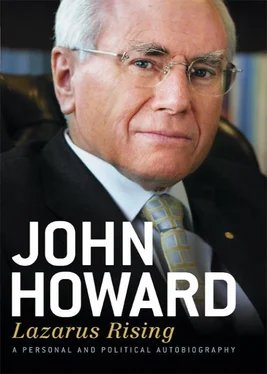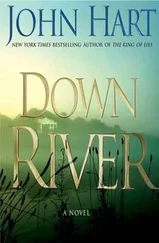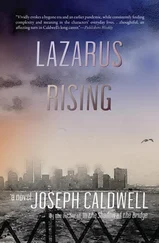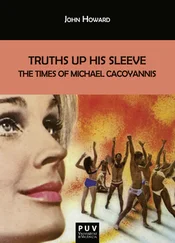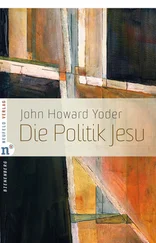I had played cricket in the afternoon, but arrived in the electorate to help with scrutineering after the close of the polls at 8 pm. When the count had been completed, Liberal workers gathered at the Centennial Park home of a barrister, Malcolm Broun, to engage in the obligatory wake. It was there that Janette and I met.
From then on, we saw each other constantly. Janette was a high school teacher. She taught English and history at St Catherine’s Girls School, at Waverley, in Sydney. Before and after being at St Catherine’s Janette also taught, respectively, at Randwick Girls High School and at Killarney Heights High School. Though Janette never harboured a desire to enter the political arena herself, she was fascinated by the ongoing nature of the political contest. Over the years we have often agreed that politics is ‘the only game in town'.
Our views were similar on many issues, and she was a natural Liberal supporter, but her assessments were always self-generated. Like me, Janette had grown up in a household where both of her parents discussed politics. Her father, Charles Parker, had worked for the NSW railways, having joined the railway workshop in Newcastle as a young man prior to World War II. By the time of his retirement in 1973, he had risen to the position of Chief Civil Engineer. Although he held conservative views on most issues, because he had always been a public servant, he came at them often from a different perspective to mine.
Janette’s support and counsel throughout my career has been invaluable. To share a common interest in one’s vocation with one’s life’s partner is a real blessing. I know many politicians whose wives or husbands simply do not like politics and are constantly urging them, in one fashion or another, to leave the political arena. That never happened to me. From the start of our relationship Janette knew that my heart was set on a political career.
We became engaged in January 1971, and married on 4 April 1971 at St Peter’s Anglican Church, Watsons Bay, the local parish church attended by Janette and her mother. It is a beautiful church, perched on a cliff right beside the ocean, and close to the lighthouse at Watsons Bay. My best man was Alan Plumb, a fellow Young Liberal, who remains a close friend.
After we married, Janette and I rented a home unit in north Lane Cove, in the electorate of Bennelong. The Bennelong Liberal MP Sir John Cramer was 75 and would likely retire in the near future. I had firmly fixed my sights on winning preselection for that seat when Cramer went.
1970 ended poorly for both John Gorton and the Liberal Party. The Coalition fared very badly at a half-Senate election held in November. His detractors quickly blamed Gorton for the result. This added to the pressure on the Prime Minister.
The legendary political journalist Alan Reid had a colourful saying to describe a situation within a political party where an event, coming from nowhere, could bring about sudden change, usually of leadership. He would speak of there being ‘plenty of dry grass around', meaning that the leader’s position was inherently unstable, and all that was needed was for someone to throw a match to the dry grass. That was the position for John Gorton early in 1971. The person who threw the match was Malcolm Fraser.
Fraser had been one of John Gorton’s principal backers in 1968, when Gorton secured the leadership to succeed Holt and became PM. Yet it was Fraser quitting the Government, followed by a searing resignation speech, which triggered the events producing Gorton’s removal. Fraser had resigned because of what he regarded as Gorton’s disloyalty to him as Defence Minister, concerning press reports damaging to Fraser of army activities in Vietnam. He believed that Gorton could easily have stopped the story appearing, but had been content to let it go ahead — to Fraser’s embarrassment. In his speech Fraser went way beyond the immediate cause of his resignation, delivering a general broadside against Gorton’s style of government. This provoked the moving of a motion of confidence in Gorton in the party room which was sensationally tied — 33 each. Gorton used his casting vote to oust himself, thus surrendering the prime ministership.
The totally chaotic, and hopelessly compromised, way in which the Liberals changed from Gorton to McMahon was a symptom and not the cause of the party’s malaise after so long in office. Contested leadership changes should only occur where a majority clearly believe that an alternative to the incumbent can do a better job. In 1971, McMahon was not the preferred choice over Gorton. Rather, half the party room, for a whole variety of reasons, could no longer stomach Gorton. This was as much a reflection on their lack of foresight as it was on Gorton’s failings as a leader. They must have known that McMahon was the only alternative to Gorton.
The personal animosity which flowed from the manner of Gorton’s removal as prime minister was the most intense that I have ever seen in politics. Gorton never forgave Fraser for his perceived betrayal. In March 1975, when Malcolm Fraser was elected Leader of the Liberal Party, Gorton, who had voted for Snedden, immediately the result of the ballot was announced, walked out of the party room, slamming the door behind him, and never returned to the room again. In the 1975 election, sadly, the former Liberal Prime Minister contested a Senate seat from the ACT as an independent.
On two occasions I witnessed the refusal, some 30 years after the events of early 1971, of John Gorton to speak to Malcolm Fraser. One was at a Liberal Party dinner in the Great Hall of Parliament House to mark the 50th anniversary of the election of the Menzies Government, when Malcolm Fraser, John Gorton and I, with our wives, were left together as the last entrants to the dinner. Janette looked after the Gortons; I entertained Malcolm and Tamie. The other occasion was a formal dinner hosted by the Queen and Prince Philip at Buckingham Palace, where the six of us plus Gough Whitlam and Bob Hawke and their wives, Margaret and Blanche respectively, were also present. This dinner was one of a series of events honouring the centenary of the passage through the British Parliament of the Australian Constitution Act. With typical Buckingham Palace efficiency, the seating arrangements made appropriate allowance for all sensitivities, and no difficulties arose. I have reflected since that Her Majesty would not have minded Gorton’s intransigence, because he was the only one of her former Australian prime ministers who would have voted for her in the republic referendum in October 1999! 1
Thirty-one years after Gorton’s deposing as leader, Tom Hughes, his former Attorney General, delivered the eulogy at Gorton’s state memorial service in Sydney. It consisted, largely, of a blow-by-blow account of what he saw as Malcolm Fraser’s dishonourable role in Gorton’s downfall. In the eulogy Hughes traversed many of the points of criticism of Gorton contained in Fraser’s resignation speech, rebutting all of them. It was an amazing performance, and largely reflected Hughes’ loyalty towards Gorton.
Towards the end of 1971, Tom Hughes presented me with an unexpected opportunity to obtain preselection for a safe seat in federal parliament. Disillusioned with federal politics, he had decided to retire from parliament and return full-time to the Sydney bar. McMahon had sacked him as Attorney General. Few people saw this as anything other than a pay-off to Gorton’s opponents within the party. It was an unwise and spiteful act. Hughes had been an extremely good Attorney General; on merit he should have been left there. His seat of Berowra was very safe and attracted a huge field. I lived a fair distance from the area, however had lots of Liberal Party contacts there, including my eldest brother, Wal, who was the president of one of the local branches.
Читать дальше
